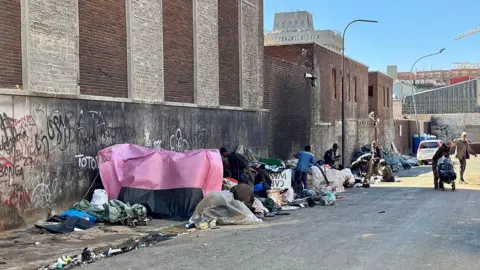As South Africa continues to face a precarious electricity supply, many families are turning to solar energy solutions to maintain essential services. Personal stories, such as that of Mark Moodley, highlight the significance of solar power in critical health situations. Moodley’s 81-year-old mother relies on an oxygen concentrator, making a consistent power supply vital for her health: “It’s been a lifesaver,” he states, relieved that her oxygen tank remains powered despite frequent electricity outages.
The country has a lengthy history of "load-shedding," a form of regulated blackout intended to relieve pressure on an aging power grid, largely reliant on coal. After nearly 15 years of challenges, South Africa is exploring renewable energy alternatives, loosening regulations on solar power generation and providing tax incentives.
Despite this progress, financial barriers remain significant. Many citizens can't afford the high upfront costs associated with domestic solar systems, ranging from $14,000 to $19,600. In response, startups like Wetility have launched pay-as-you-go solar solutions tailored for low-income users. These monthly payment options, starting at $60, provide a feasible path for many households seeking reliable power.
With innovations in solar technology, Wetility employs a unique approach that reduces theft risk by creating lightweight, flexible solar panels for vulnerable housing. As the company's founder, Vincent Maposa, articulates, "Access means nothing if the power isn't reliable or affordable." Their approach aims to bridge the affordability gap, making solar power a viable option for economically challenged communities.
Small business owners, too, are benefiting from this solar shift. Shopkeeper Julius Koobetseng highlights how transitioning to solar power has revitalized his grocery store amid ongoing power outages. Instead of relying on temporary diesel generators, he has opted for renewable energy solutions: “Solar gave me back control.”
Though challenges persist, the rise of affordable solar energy systems represents a pivotal step toward energy independence in South Africa, enhancing the quality of life for many dependent on stable electricity. As communities navigate the transition, the promise of cleaner, consistent, and more economical energy sources offers hope for the future.




















